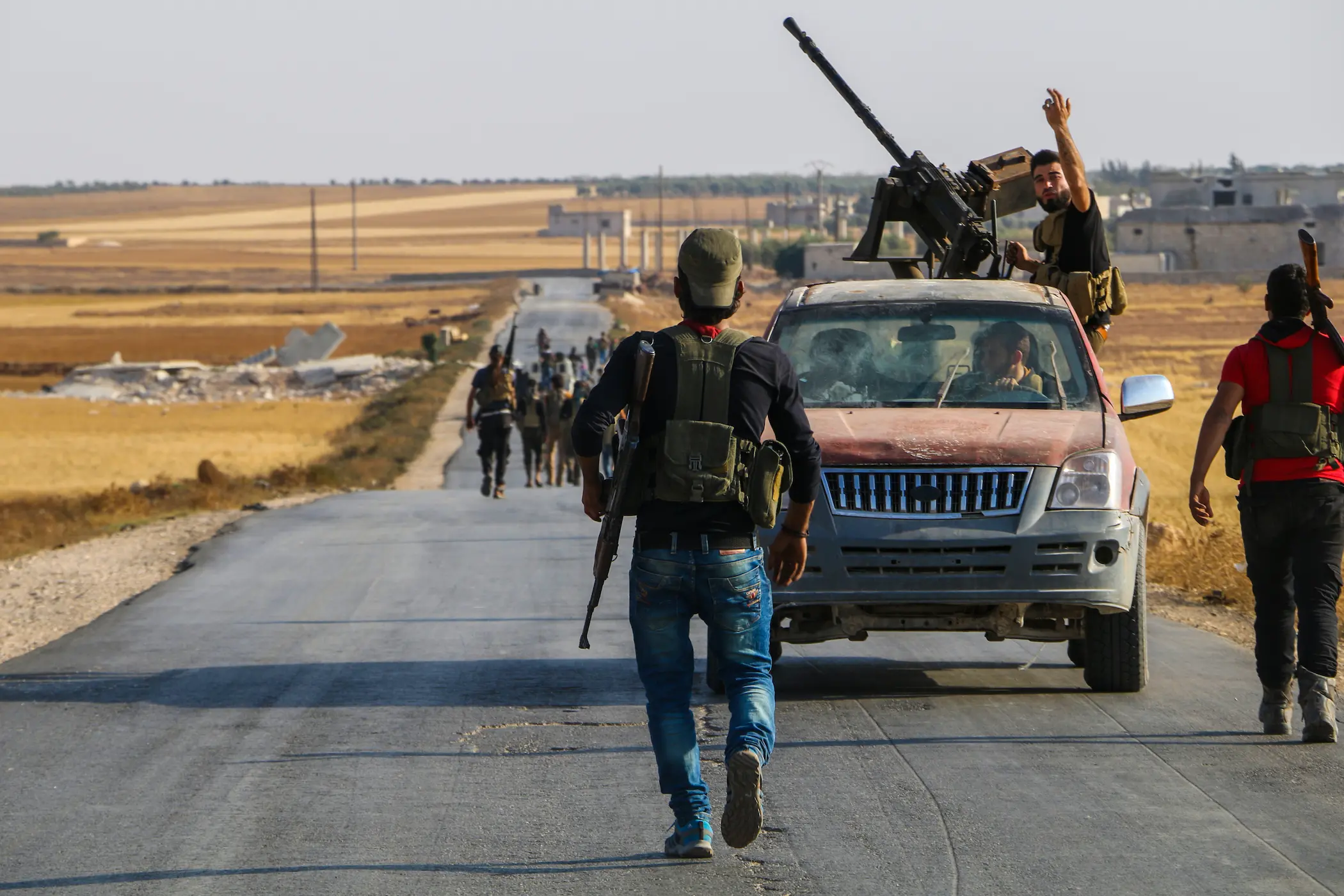The assassination attempt on Former President Donald Trump is the closest a president or presidential candidate has come to being assassinated since the shooting of President Ronald Regan by John Hinckley Jr. in 1981. President Jospeh Biden was quick to condemn the attempt saying “There is no place in America for this kind of violence — for any violence. Ever. Period. No exception. We can’t allow this violence to be normalized.”
Despite his call for unity and a cooling of tempers, Biden's assertion that this particular violence has no place in the U.S. overlooks a significant historical context. Political violence has been central to the formation of the U.S., with guns being one of the many instruments used to shape the nation and its trajectory.
Every U.S. president that has been assassinated or targeted was through the use of a gun. Presidents Abraham Lincoln, James A. Garfield, William McKinley, and John F. Kennedy were all shot and killed. This violence was not restricted to presidents alone; civil rights leaders such as Medgar Evers, Malcolm X, Martin Luther King Jr., and Fred Hampton were all shot and killed in less than a decade.
The attempt on Trump’s life is a stark reminder of the polarization and political violence that has always been at the heart of the U.S., and which has increased in recent years, largely due to the politics of Trump himself. He now finds himself a victim of the very forces that he has been inflaming, and this attempt on his life will have significant implications for the upcoming presidential election and beyond.
The Perpetrator, The Motive, and Contradictory Conspiracy Theories
As of now, not much is known about Thomas Matthew Crooks, the 20-year-old who attempted to assassinate Trump. According to classmates, he was quiet and often bullied in school, yet he seemed to do well in his studies. He has been a registered Republican since he turned 18 but also made a donation to a liberal group when he was 17. The gun he used was likely purchased by his father. His motive remains unknown, but the image painted by his former classmates—a loner who was bullied in school— typically aligns with a demographic that supports Trump rather than target him. This contradictory profile makes his actions even more confusing, and any speculation on the matter remains just that—speculation.
There are also many questions regarding the conduct of the Secret Service and the police prior to the assassination attempt. How did Crooks gain access to a vantage point with a clear view of Trump? Why were the Secret Service and police slow to react when those at the rally had already seen him and notified security prior to his shooting? How did he miss with such a clear view and with enough time to fire eight bullets?
These questions and many more have led to the rapid formation of numerous conspiracy theories from both sides of the political spectrum, each blaming the other for the near assassination of Trump. As is often the case, these conspiracy theories do not hold up under scrutiny.
Those from the left have suggested that this could possibly be a false-flag operation by Trump to gain further support from voters. However, this seems unnecessary, as Trump has been leading in the polls, especially after Biden’s disastrous performance in their debate in late June. Additionally, it would require Crooks to be an expert marksman to barely injure Trump, which he clearly was not, given that he fired eight shots that critically injured two more people and killed another. Finally, Trump does not seem to be the type of person to willingly gamble with his life for political gains.
Those on the right have accused Biden of two things; that his rhetoric has led to the attempt citing his call with private donors in which he said “I have one job, and that’s to beat Donald Trump. I’m absolutely certain I’m the best person to be able to do that. So, we’re done talking about the debate, it’s time to put Trump in a bullseye,” others on the right have pushed this further and accused Biden of outright ordering the assassination of Trump. The right has a lot of fingers to point starting with the performance of the Secret Service and police prior to the assassination attempt, Biden’s poor performance against Trump that may lead to desperate measures, and statements made by Trump. Again, many of these do not hold up to scrutiny.
Firstly, if Biden had ordered the assassination of Trump why would he leave that in the hands of a 20-year-old. Secondly, the statements made by Biden were made to private donors on July 8th, it would be impressive if Crooks had heard that statement and then was able to plan the assassination of Trump —a former president and presidential nominee— in five days, this would make him extremely competent, which makes his ability to not hit his target even more baffling. Finally, given the Supreme Court’s decision in Trump v. United States, which seems to give the president near immunity from prosecution for “official acts,” Biden could potentially order the assassination of Trump as an “official act” and test the limits of presidential immunity.
Despite the conspiracy theories and how interesting or convoluted they are, the attempted assassination of Trump has far-reaching implications for the upcoming elections.
The Implications
The attempted assassination of Trump, though unlikely to win him new voters, will significantly energize his existing base. This increased enthusiasm will likely result in higher voter turnout among his supporters, as Trump and his campaign capitalize on the attempt and blame the left and its rhetoric for fostering an environment conducive to such violence.
This situation presents two major problems for the Democrats. Firstly, increased voter turnout from the right is problematic for any Democratic candidate. Combined with the anticipated low turnout from Biden supporters—due to concerns about his age exacerbated by his poor debate performance—Biden faces a daunting challenge in securing a second term. Secondly, the Republican narrative that Democratic rhetoric may have incited the assassination attempt undermines the Democrats’ key message that Trump poses a fundamental threat to American democracy. Persisting with the same message could further alienate potential voters.
A more dangerous implication is the potential for an escalation, leading to a similar attempt on Biden’s life. If this were to occur, it would likely damage Trump, creating a backlash similar to the one he stands to benefit from. Trump’s campaign appears aware of this risk, as evidenced by his statements following the attempt, which have mirrored Biden’s calls for unity and calm.
As discussed above, violence is not new to American politics, but an escalation sets a perilous precedent where targeting presidential candidates or politicians becomes more commonplace. The United States is already in a period of heightened polarization, with numerous recent incidents being extremely alarming. These include the 2017 shooting of U.S. House Majority Whip Steve Scalise, the 2020 plot to kidnap the Governor of Michigan, the 2021 Jan. 6 attack on the Capitol, the 2022 assault on Paul Pelosi, husband of then-Speaker of the House Nancy Pelosi, and now with the attempted assassination of Trump. If this trend continues and there is no longer a safe space to practice democracy then it will end.
Al Habtoor Research Centre’s Commentary articles allow researchers to provide quick, informed responses to ongoing topics, emphasizing personal perspectives and expert opinions without the weight of exhaustive citations. This ensures agility in addressing rapidly evolving subjects and enriches the discourse with authentic insights.










Comments